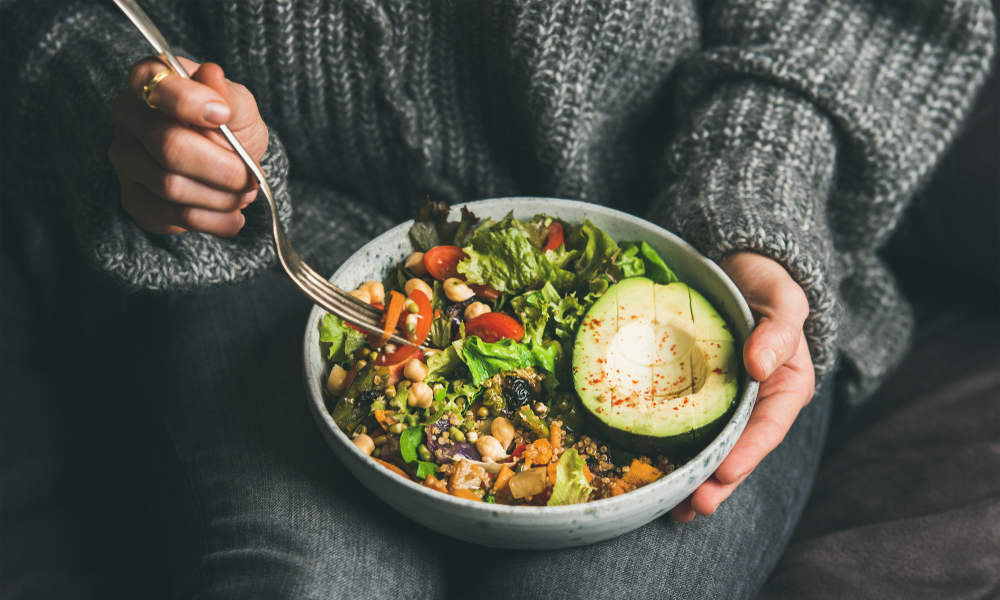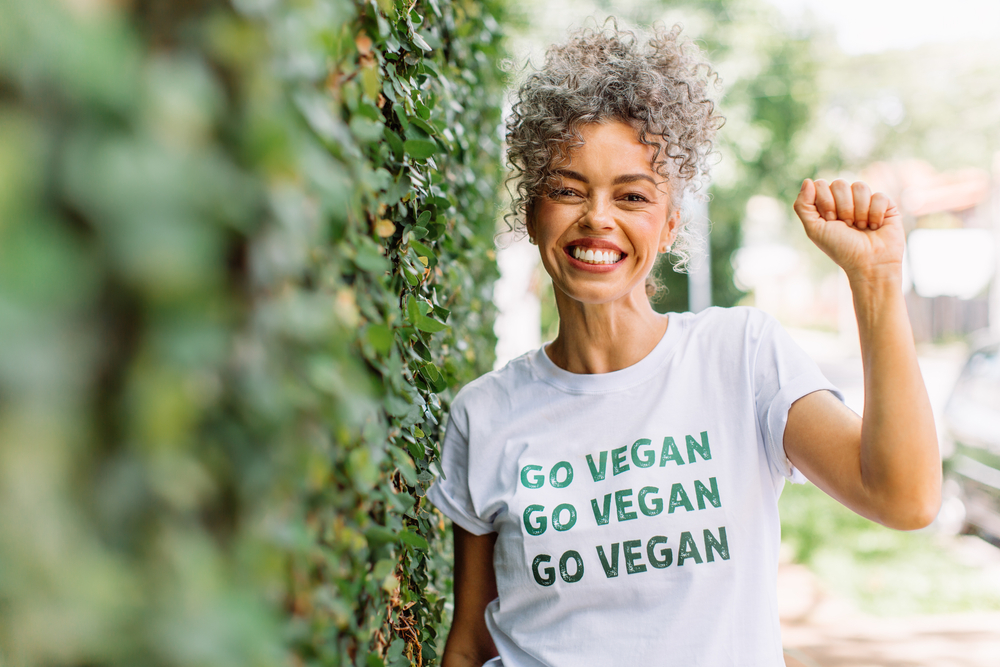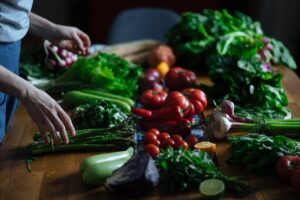What is veganism?
From a general point of view, veganism is a lifestyle that excludes the consumption of all types of animal cruelty. A vegan person will eliminate products such as meat, eggs, dairy, honey, or any food of animal origin from their diet.
Many people choose to go beyond diet and apply this belief to their surroundings as well. With a vegan’s objective of not being a part of animal cruelty, some of them will exclude goods such as leather/ wool clothing or furniture, cosmetics tested on animals, and so on. As well as not participating in certain activities, including going to the circus and visiting zoos.
Not to be confused with vegetarianism, a less strict lifestyle similar to veganism, that typically does not restrain from consuming dairy and eggs. The primary discrepancy between veganism and vegetarianism is the role of animals in food production.

Why do people choose to become vegan?
As the concept of veganism has become more and more popular in the last few years, you may have wondered “Why should I go vegan?”. From an ethical perspective, people who identify as vegans believe that all animals have the right to live and be free, considering them to be conscious beings, just like humans are.
Taking this into consideration, they aim to suppress animal cruelty, considering that humans do not have the right to exploit animals, especially given the conditions that animals are kept and used for the production of goods. Billions of animals are killed each year for the sake of human consumption.
Another reason can be constituted by the health benefits that this behavior brings. Many studies have shown that vegetarians and vegans have overall better health than people who eat meat. It is well-known that a diet full of fruits and vegetables has a lot of health benefits such as lower blood sugar levels, better kidney function, it is rich in nutrients, lowers the risk of heart diseases and helps you lose excess weight.
Lastly, environmental activism can be another incentive that pushes people to make this change, in an attempt to reduce animal agriculture that was shown to have a huge impact on greenhouse gas emissions that ultimately contribute to climate change. Not only that, but the water and land usage, waste, labor costs, and so on can also decrease the environmental impact.
Can it increase life span?
This question may be raised as a result of the well-known benefits that veganism brings, such as weight loss, lower risks of heart diseases, diabetes, cancer, and others. This diet is associated with life longevity because it prevents many chronic diseases.
Although people who identify as vegans are known to have better overall health, the available data is not enough to sustain whether meat abstinence increases life span. However, a generally healthy lifestyle can have both physical and mental benefits.
Celebrities that promote veganism
Personalities such as Miley Cyrus, Pamela Anderson and Lizzo are known to endorse this type of lifestyle in interviews and on social media platforms, admitting that since adopting this lifestyle, their lives have changed for the better.
Miley Cyrus has been committed to veganism for almost 10 years and even included this diet in the wedding with her ex-husband, Liam Hemsworth, in 2018. The couple’s wedding reception incorporated a variety of vegan choices. Her engagement toward veganism is so strong that she even got a tattoo that represents this concept.
Recently, Lizzo announced proudly on social media that she joined the vegan community, sharing her journey on TikTok, as well as delicious-looking dishes and how to prepare them. Lizzo stated that for her, being vegan is not about the external factors (losing weight and looking a certain way), but about the internal health benefits. She suggests that people who have just started this new lifestyle should set small goals.
How to adopt this concept into your life
As any change in our lives is a process to adapt to, becoming vegan is something you should take slowly, step by step. This change requires getting used to and getting to know what works for you.
Feel free to experiment and try various approaches in order to figure out what works best for YOU. Making small changes can help you avoid getting overwhelmed by such a big adjustment. Try and find alternatives to the foods you love and take your time with it! Removing one animal product at a time might make it easier to commit.
Always remind yourself of the reasons why you started veganism and push through the toughest times! Being informed on this topic can make you feel motivated and stay woke on your choices. Reading books, articles and so on can make you feel connected to your decision.

How to make sure you get all the nutrients
Many people have the misperception that going vegan implies sacrificing important resources, often found in eggs, meat and dairy, but that’s not the case at all.
Getting creative with your meals and having a diverse diet is the way to go! It’s all about combining proteins from foods such as nuts, seeds, beans and so on with vitamins and minerals. Here you can find all types of recipes for all types of people.
Although many animal products contain these nutrients, it is not a secret that food-store alternatives often have the same benefits. As an example, plant based milk has the same amount of calcium as cow milk, so it can easily be replaced without sacrificing the nutritional value.
If you feel the need, supplements such as B12 and D3 are always a good idea to make sure you’re staying healthy.
Don’t give up!
To keep it fun, you should always try new things. Not only does it help you stay intrigued, but it is also a way to get to know yourself better and what works for you, which will make dieting easier in the future. It’s all about consistency, so stay strong and don’t give up even in the toughest times.
For a smooth transition, you might want to start eliminating meat, dairy and eggs gradually. Give yourself and your body time to properly adjust without feeling the pressure to do everything right from the beginning, as it takes time and determination to find what works best for you.
Everybody is different from one another, so try not to compare yourself to someone else’s journey. Focus on yourself and take it easy!
Conclusion
Being vegan is not only a form of diet, but a lifestyle in itself, a choice that is based on certain environmental, ethical and health beliefs that an individual has. Adopting this concept can help reduce animal cruelty, environmental changes and increase long-term health.
As John Heywood states, “Many hands make light work”, so if a larger group of people adopt this lifestyle, we can contribute to a large environmental transformation that will ultimately benefit us in various aspects, not only health wise, but from the atmospheric perspective as well.
However, there are many health issues that might restrict a person from adopting this style of living and you should definitely check with a nutritionist before making this change, as it might aggravate certain conditions.
So what do you think? Is the Vegan lifestyle for you? Share your thoughts with us in the comments below!
You might also be interested in how to regrow fruits and veggies from leftover scraps.







